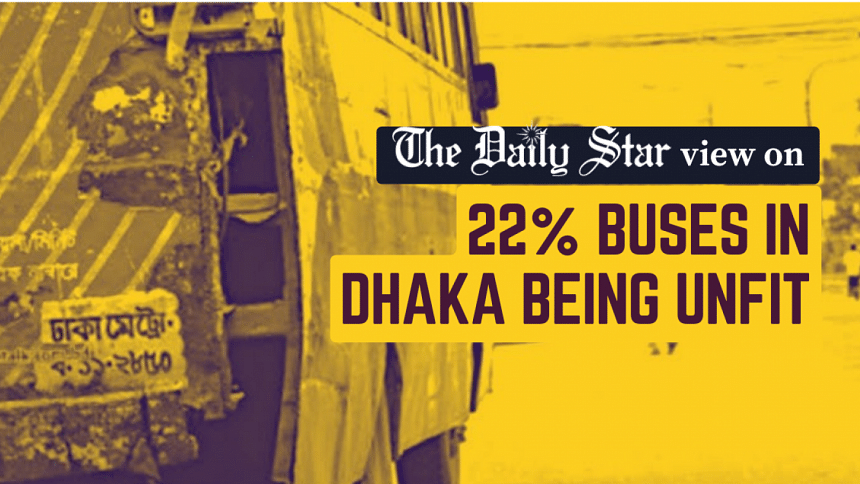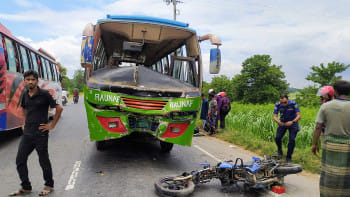Why is 1 in 5 buses in Dhaka unfit?

We are at a loss as to how the Bangladesh Road Transport Authority (BRTA), the sole government agency responsible for ensuring a sustainable, safe and environment-friendly modern road transport system in the country, is allowing hundreds of buses to operate in Dhaka without any fitness certificates for years on end. By the BRTA's own estimates, 21.92 percent of the buses plying the roads in the capital do not have the necessary fitness clearances. But while the transport authority claims that there are 75 companies running 3,974 buses, transport sector insiders have told this daily that there are over 120 operators running more than 5,000 buses in the city. This means that the number of unfit buses wreaking havoc on our transport system, and putting the lives of commuters and pedestrians at risk on a daily basis, is much higher than the BRTA estimates.
It is now an open secret that unfit buses are allowed to operate in Dhaka – and in Bangladesh – in exchange for hefty bribes, a despicable process in which a host of actors are involved, from BRTA officials to members of law enforcement. For how long will the BRTA continue to turn a blind eye towards such criminal activities taking place right under its noses? How many more lives will be lost to needless crashes caused by unfit vehicles before our authorities start taking their mandate of monitoring and regulation seriously?
In 2019, the government formed a committee to rationalise bus routes and have a limited number of bus service providers in Dhaka for effective regulation. The rationalisation of bus routes was supposed to be a marked departure from the current "trip system," where the more trips drivers make – and the faster they drive, in violation of traffic rules – the more money they make. Although the committee stopped issuing fitness certificates from 2019, only three of the 42 routes in the capital have been rationalised thus far. The buses that were denied permits have continued to roam the streets in the meantime, with the authorities seemingly nonplussed about its implications on an already fragile transport system.
Experts have aptly pointed out that the drivers of these unfit buses are even more reckless as they are accountable to no one. These buses pose a grave danger to the city dwellers as well as to the environment. Under the circumstances, we urge the BRTA authorities to wake up from their perpetual slumber and take their job of monitoring and regulation seriously. Not being able to deliver on their mandate is not an issue of manpower – as is oft-cited by them when asked why they are failing to monitor unfit vehicles – but one of willpower.


 For all latest news, follow The Daily Star's Google News channel.
For all latest news, follow The Daily Star's Google News channel. 







Comments